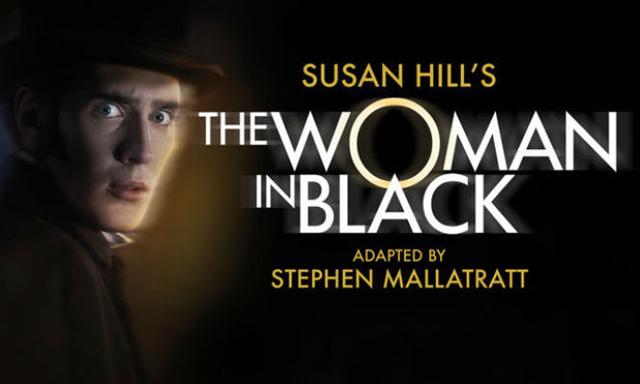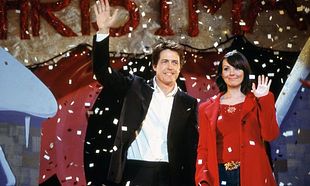Sometimes, your imagination can be your own worst enemy. For a story like The Woman in Black, that is particularly true – where a shape can be seen in a shadow, a noise heard in the distant gloom, a dark insinuation fancied in a seemingly benign observation.
Both Susan Hill's superb 1983 novel and playwright Stephen Mallatratt's long-running adaptation that has been in situ in the West End since 1989 have enjoyed enormous success (the less said about the Daniel Radcliffe-starring Hollywood production and its dire spin off) for that reason; there is a beauty in the simplicity of this story.
Essentially a two-man show, we follow the fortunes of Arthur Kipps, a shy, middle-aged man who has come to an actor's studio for advice on how to tell his story - a bundled manuscript penned for posterity, which he eventually aims to share with his family. After some gentle coaching, his story begins to emerge: 'The Actor' becomes the young Mr. Kipps, while Kipps himself transforms into various supporting characters with a subtle costume tweak here, a change of accent there.
We see Kipps, a young solicitor, leave London for the mysterious coastal village of Crithyn Gifford, a place where darkness and secrets abound – many of them apparently with their source in Eel Marsh House, the lonely estate that Kipps has been despatched to to settle after its last resident, Alice Drablow, has passed away. Without spoiling anything, the secrets that he uncovers in the creaky gloom of the fog-smothered mansion will have repercussions long after he leaves the odd, insular village.
The story itself is thoroughly engaging, but it is the actors that really sell the yarn. Matthew Spencer shines as the encouraging if occasionally exasperated (and often impressed) foil to David Acton's Arthur Kipps. Acton is particular excels as he switches mannerisms between gruff, monosyllabic pony-and-trap drivers, haughty local landlords and put-upon locals who are reluctant to reveal the secrets of Eel Marsh House – and who or what The Woman in Black really is.
There are both jump-out-of-your-seat moments and stretches of spine-tingling foreboding, suspense and dread, the lighting and subtle sound design enhancing the spartan stage design brilliantly. In short, there's a reason why this production has been running for so many years; for those who love a good old fashioned, well-told and supremely satisfying ghost story, you simply can't go wrong with The Woman in Black.
****
The Woman in Black runs at Dublin's Gaiety Theatre from Monday, March 13th until Saturday, March 18th. See www.gaietytheatre.ie for tickets and more info.









































































